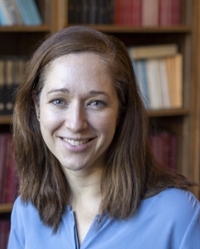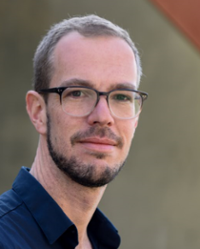
Re-occurring moments to reflect on our values: ‘It’s about commitment to culture change'
How do we navigate the continuously developing landscape in research integrity, ethics, and open science? Anna van 't Veer and Eiko Fried discuss the underlying principles and values of science with all psychology units in their Responsible Scholarship workshop.
When it comes to scientific integrity, many daily decisions fall into a grey area. While codes of conduct are in place, they often do not provide ready-made answers or detailed guidelines. In midst of the busy schedules of teaching, research and committees, Anna van 't Veer and Eiko Fried have been touring the units within our Psychology institute with a workshop to reflect on the importance of responsible scholarship.
Reflecting now
‘We offer this workshop not only to keep everyone updated about responsible scholarship practices, but also to collectively reflect on how we work. Best practices and standards are dynamic and evolve over time,’ explains Anne van 't Veer, who, in addition to being an assistant professor, serves as the community manager of the Open Science Community Leiden, where she promotes values like transparency, equity, and team science.
'By reflecting on our values now, we can better navigate difficult decisions in the future'
‘By reflecting on our values now, we can better navigate difficult decisions in the future when dilemmas inevitably arise. It's important to recognise that while much in science goes smoothly, mistakes and other distortions to research integrity occur, especially when there are high stakes and misaligned incentives. In such moments, knowing where you and your colleagues stand, as well as understanding the institutional frameworks provided by our university and institute, is invaluable.’

Anna van Duijvenvoorde, associate professor
'Besides being incredibly informative, I was very impressed by the 'simple' tip: have the conversation about responsible research and the daily dilemmas we face. The conversations alone during the workshop were very valuable. I encourage everyone, both students and staff, to continue that.'
Integrity dilemmas
Van 't Veer teaches a similar course called Scientific Conduct for PhD candidates from the FSW Graduate School. 'Over the years, it has become obvious that students commonly face integrity dilemmas, and have suggested repeatedly that a similar course be taught to their supervisors as well. This workshop, and the other initiatives surrounding responsible scholarship in our institute, are a direct result of that. For instance, together with Zsuzsika Sjoerds and Pascal Haazebroek, Anna van ‘t Veer is working on mapping a scientific integrity learning trajectory throughout our Psychology bachelor and master programmes.'
Misaligned goals?
Van 't Veer and Fried tentatively define responsible scholarship as ‘conducting our work with integrity and striving to meet the needs for improved quality and efficiency in science, thereby reducing research waste.’ This approach aligns with an overarching goal of science: creation of robust, credible knowledge that benefits society. However, pressures within the system can create a disconnect between this collective goal and the individual researcher's objectives,’ van 't Veer explains.
'Responsible research can be hindered by external pressures as competitiveness or difficult power dynamics'
‘These pressures manifest in various forms, such as competitiveness, the fast-paced nature of academia, the 'publish or perish' mentality, reliance on external funding, or difficult power dynamics.’ Consequently, researchers frequently find themselves grappling with dilemmas regarding whether they should navigate their research journey guided by their integrity compass, or conform to prevailing norms.
Daily distortions to scientific integrity
Such problems thrive in an environment of constant pressure and high workload, and many of us may make small decisions every day that can lead to minor integrity distortions. These decisions may seem inconsequential at the time and can easily be rationalised, but they add up and matter for building a robust, cumulative psychological science. Van ‘t Veer stresses that culture change can help here: ‘Progress is made by small steps that together will create culture change. We need to come at this from different angles, including making our values explicit, talking about the impact of our decisions (including small ones) and building communities that help creating norms around best practices such as data sharing. We need to align incentives and opportunities better with the goal of science as a whole.’
Tip of the iceberg
In the workshop, they use the image of an iceberg to highlight that it is currently unclear what the biggest contributions are to responsible research challenges. We see the tip—things that are easy to identify, such as the occasional severe case of scientific misconduct—but the vast majority of issues is likely hidden, because we lack the transparency (e.g., open data, open code) to identify when problems exist. Fried talks about an example where, due to him sharing all his code openly, someone else was able to identify an error in his code. This led to a correction of his work: science working as intended.
Solutions in self-correction
More and more initiatives are taking place that make it easier to enhance the quality and rigor of our work. Fried: ‘One example is the shift towards improving the self-correction mechanisms in science. Take for instance retractions. Traditionally, it has been difficult to find out whether papers you wanted to cite in your manuscript had been retracted. It was extremely time-consuming to check every single reference online for potential update. Recently, the reference manager Zotero has been updated to inform you about retracted papers in your library.’

Michiel van Elk, associate professor
'Eiko Fried and I recently published a paper and found that a table did not show the data quite clearly. We wanted that corrected, but the staff at the scientific journal thought that was a lot of administrative work. It took numerous emails back and forth before it finally worked out. Eiko kept insisting, I don't know if I would have persisted like that.
I think it's good that the norm is changing: if you used to withdraw a paper, people were more likely to think you had committed fraud. Now it’s perceived as transparant.’
Criticism as inherent part of work
Also, large funding bodies like NWO have mandated much stronger open scholarship practices, and it is also becoming more normal to talk about mistakes. Fried: ‘We need to establish a culture change where checking each other’s work thoroughly is encouraged, and where we take criticism of our work as a feature, not a bug in science.
'We need to establish a culture change where checking each other's work is encouraged'
Transparency and openness are necessary, albeit not sufficient, to get this going. And I find it encouraging that individuals, but also large-scale initiatives have started up that provide rewards for identifying mistakes, including in your own work.’
Culture change
Van ‘t Veer and Fried conclude their workshop with a call for culture change: ‘We recognise that providing information in one workshop only goes so far. After the workshop, it is likely that people return to their established behavioral patterns. To really make it stick, the workshop comes with online open educational materials, and the research coordinators within each unit will take the lead on follow-up sessions to further discuss and work on topics such as authorship and team science, open scholarship philosophies, Equity, Diversity & Inclusion, and team statements or standard operating procedures for labs to put principles into practice. To accomplish progress, we need constant recommitment to our values.’
Want to contribute to responsible research?
The Responsible Scholarship workshop is and product of the Scientific Integrity work group, which has been active for 2 years. If you would also like to contribute to future initiatives, please sign up by emailing Thaddeus Bergé (t.m.g.berge@fsw.leidenuniv.nl).
